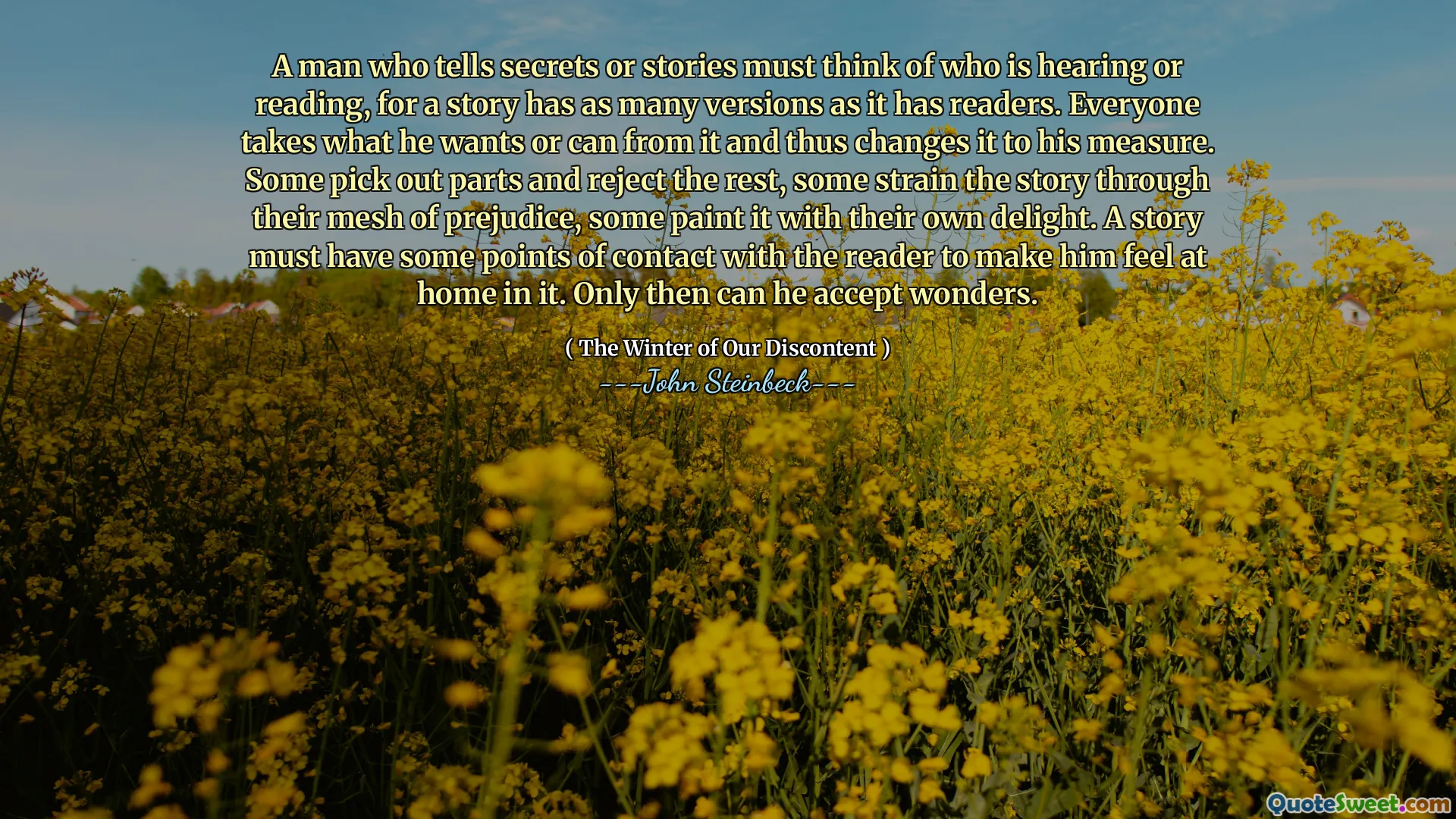
A man who tells secrets or stories must think of who is hearing or reading, for a story has as many versions as it has readers. Everyone takes what he wants or can from it and thus changes it to his measure. Some pick out parts and reject the rest, some strain the story through their mesh of prejudice, some paint it with their own delight. A story must have some points of contact with the reader to make him feel at home in it. Only then can he accept wonders.
This quote offers a profound insight into the art of storytelling and the nature of communication. It highlights how every narrative is inevitably influenced by the perspectives of its audience, as each reader or listener filters the story through their own experiences, beliefs, and biases. The idea that a story can have as many versions as there are people underscores the fluidity and subjectivity inherent in storytelling and interpretation. When a storyteller shares a secret or an account, they must be mindful of their audience, recognizing that understanding is never entirely objective but shaped by individual perceptions. People tend to interpret stories differently—some extract certain parts while ignoring others; some project their prejudices onto the narrative, twisting it to fit their worldview; others embellish or downplay elements based on their own emotional responses. For an effective story to resonate, it needs to establish points of contact with the audience, fostering familiarity, relatability, and emotional engagement. Only then can the story evoke wonder or transform perception. This underscores the importance of empathy and intentionality in storytelling, reminding us that words are like mirrors—they reflect the reader’s internal landscape as much as they share the storyteller’s vision. Whether in literature, conversation, or even in daily interactions, respecting the interpretive lens of the audience can create meaningful connections and deepen understanding. In essence, stories are dynamic exchanges rather than static truths, forever shaped by the human experience.





